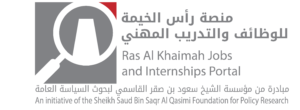You have gotten your CV ready and you have chosen the jobs you want to apply for. You have also rehearsed common interview questions and how to answer them. However, one thing is missing, your cover letter. Imagine being certain you would get that job but your cover letter puts your hope down. That is why we have come up with all you need to know about cover letters.
What is a cover letter?
It is a brief one-page document you submit along with your CV/resume to summarize your professional skills.
Why is it important?
A cover letter helps convince the hiring manager that you are a perfect fit for the job. It emphasizes your experience and potential stated in your CV. It can also make you stand out from other job applicants.
Now, how do you write a cover letter?
Here are essential tips on how to write a cover letter that can land you that dream job.
Length: The average words of your cover letter should be around 250 to 400 words long. It should be at most a page and have three to four paragraphs.
Layout: To make the cover letter easier to read, ensure to add enough white space. Readable fonts and colours should also be used when writing a cover letter.
Introduction: Start with a formal greeting. e.g., “Dear, Hiring Manager.” After that, go ahead to express your excitement about applying for the job and make a brief statement showing your expertise. You should be able to grab the recruiter’s attention with your introduction.
Body: Ensure to highlight relevant experiences that show you qualify for the job you are applying for. In addition, state how you solved problems in the past with your skills and the results you brought to your past workplace.
An example of a statement of result is “I increased the conversion rate of my previous company by 35%.” This lets the recruiter know what problems you can solve for their company.
It would also show why you are the perfect person for the job and the company. Another thing to take note of is the responsibilities stated in the job application. For example, the job requirements can be:
A Video editor needed
Good in Adobe Premiere Pro
At least 2-3 years of experience.
Basic knowledge of voice-over editing
With this, your statement about your qualifications should align with the responsibilities like this:
“As a video editor for 5 years now, I have made use of Adobe Premiere Pro to create engaging videos that increased the sales of my company. As the assistant lead video editor in my company, I wrote creative scripts for video productions and edited voiceovers to the highest quality.”
Conclusion: Summarize your passion for the industry and company. You can give feedback about a product or service about the company. Show confidence by stating how you can add more value to the company.
Do not forget to appreciate the company for the opportunity to apply for the job. Also, input your contact details at the end of every cover letter. If you have an attached document or link below your cover letter, you can point it out so that the recruiter takes note of it. In the end, put a call to action and a formal goodbye like “Best regards” and “Thank you.”
Now, we mentioned things to take note of when writing a cover letter. However, there are also things you should not do in your cover letter.
Focusing on only “you”: Do not make the cover letter only about yourself. It should explain why you are a perfect fit for the job and the company. It should be filled with what the recruiter would want to see, not only what you want to say. You do not need to share accomplishments that are irrelevant to the job you are applying for in a cover letter.
Generalizing: You have to customize your cover letter according to the specific job you are applying for. A cover letter should not be the same for every job you apply for but instead, should be written and edited based on your choice of job applications.
Using a funny email address: This can make you seem unprofessional and recruiters can put you out for it. Instead, you should use a professional email that has your first and last name preferably.
Repetition: Avoid repeating what is already stated in your resume. This would make you seem desperate with little or nothing to say. If you do not have anything new to say in your cover letter, you can explain in more detail about your achievements and the results you can bring to the company if you are considered.
Ambiguity: Your sentences do not have to be long and complicated. Write as simply and straightforwardly as possible.
No proofreading: This can cause you to lose your job. Your cover letter may be filled with grammatical errors or spelling mistakes. Proofreading it can let you know if there are any mistake a and what you should correct.
Writing more than a page: Your cover letter does not have to consist of everything about you. It should only be filled with the necessary details and experience relevant to your job application. A page is enough to write a professional and explanatory cover letter.
With these tips mentioned above, you should be able to write a professional cover letter for any job application of your choice.








